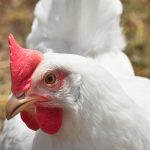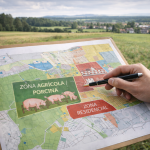Daniela Álvarez: “Construction of housing in rural areas must take environmental variables into account in order to provide families with peace of mind.”
As part of the second seminar on “Odor Management in the Industry,” the head of the Sustainability Division of the Chilean Meat Exporters’ Association, Daniela Álvarez, presented the key recommendations identified by the pork producers’ association to improve efficiency in this area.
The purpose of the meeting was to share regulatory steps taken to address odor control with industry representatives, as well as to present solutions for preventing and resolving potential odor problems associated with the production process. The information presented emphasized the economic, social, and environmental benefits of adequately managing the problem.
For Daniela Álvarez, the discussion will ultimately be addressed through land use planning. “All interested entities, including the Housing Ministry, must participate in developing regulations because current land use planning policy permits, among other things, building homes valued at less than US$ 43,000 in rural areas, which affects both the industry and families.”
According to Álvarez, the solution is to create odor regulations that are crosscutting and inclusive and which reflect input from all stakeholders. She also points out that countries like the Netherlands have effectively overcome this issue.
“The key is to propose cross-cutting criteria and enforce compliance. In the presentation, we showed how this issue has been resolved in the Netherlands, Spain, and Germany. In the Netherlands, they produce approximately four times the amount of white meat that Chile produces, considering that, their production area is equivalent to the 5th, 6th and Metropolitan regions of our country. Land use planning is the key,” Álvarez said.
The seminar featured presentations by 10 high-level experts and represents the start of a necessary debate for the Chilean pork industry.
Source: ChileCarne[:]






